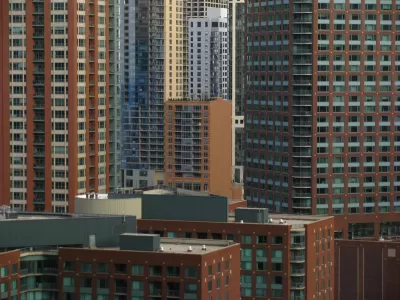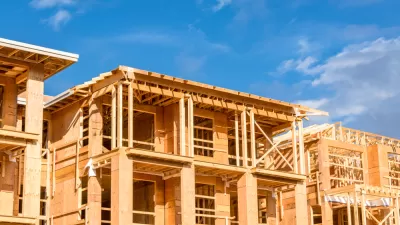Zoning changes have been a popular way to increase density and affordable housing, but more diversified policies could fill in the gaps where zoning fails.

Long favored by urbanists as a panacea for housing issues, upzoning enhances density requirements and permits increased floor areas and number of floors for new residential construction in exchange for a certain percentage of affordable units. These policies are aimed at increasing density in highly-valued, transit-adjacent urban neighborhoods and raising the number of housing units available. After decades of prioritizing single-family homes, upzoning has the promise of promoting density and encouraging more affordable multi-family buildings in areas that desperately need more housing.
Cities have come to rely on zoning to solve a broad range of economic and social issues, but just how far can zoning go? From historic red-lining to Seattle's recent plan to reduce the number of gas appliances in multi-family buildings while exempting single-family homes, many zoning policies reduce broad policy objectives to arbitrary rules that conveniently exempt certain neighborhoods and fail to apply rules equitably. Zoning wasn't designed to create more housing, and as city leaders try to undo its well-documented history as a tool for segregation, new policies must address inequities and acknowledge the need for other interventions.
FULL STORY: Dubicki: When Upzoning Becomes a Fool’s Errand

Alabama: Trump Terminates Settlements for Black Communities Harmed By Raw Sewage
Trump deemed the landmark civil rights agreement “illegal DEI and environmental justice policy.”

Study: Maui’s Plan to Convert Vacation Rentals to Long-Term Housing Could Cause Nearly $1 Billion Economic Loss
The plan would reduce visitor accommodation by 25% resulting in 1,900 jobs lost.

Planetizen Federal Action Tracker
A weekly monitor of how Trump’s orders and actions are impacting planners and planning in America.

Wind Energy on the Rise Despite Federal Policy Reversal
The Trump administration is revoking federal support for renewable energy, but demand for new projects continues unabated.

Passengers Flock to Caltrain After Electrification
The new electric trains are running faster and more reliably, leading to strong ridership growth on the Bay Area rail system.

Texas Churches Rally Behind ‘Yes in God’s Back Yard’ Legislation
Religious leaders want the state to reduce zoning regulations to streamline leasing church-owned land to housing developers.
Urban Design for Planners 1: Software Tools
This six-course series explores essential urban design concepts using open source software and equips planners with the tools they need to participate fully in the urban design process.
Planning for Universal Design
Learn the tools for implementing Universal Design in planning regulations.
Caltrans
Smith Gee Studio
Institute for Housing and Urban Development Studies (IHS)
City of Grandview
Harvard GSD Executive Education
Toledo-Lucas County Plan Commissions
Salt Lake City
NYU Wagner Graduate School of Public Service





























